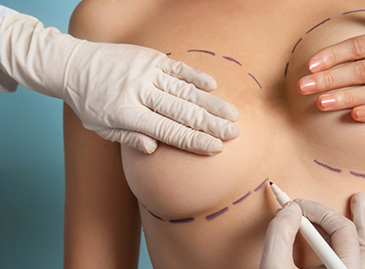
How do People Treat Opioid Addiction
Understanding the nature of Opioid addiction:
Opioid addiction is a significant health issue affecting millions globally. Opioid addiction occurs when a person becomes very reliant on drugs like prescription painkillers or illegal drugs like heroin. These substances affect the body and mind, making it very hard to stop using them without help.
When someone takes opioids, the drugs interact with the brain's reward system, triggering a release of feel-good chemicals like dopamine. This makes the person feel relaxed and happy. However, over time, the brain needs more and more of the drug to feel the same effects, leading to dependence. This is where addiction begins.
Mentally, addiction can make it difficult for individuals to think clearly or control their urges. They may find themselves consumed by the need to use the drug, which can dominate their thoughts and actions. This creates a challenging cycle where the person feels compelled to use opioids more frequently despite adverse consequences. Effective opiate addiction treatment is vital to address both the physical dependence and the mental aspects of addiction.
Detox: The First Step to Recovery
Detoxification, or detox, is the first essential step in treating opioid addiction. It focuses on removing opioids from the body to break the physical dependence that develops with long-term use. This step is crucial because opioids can cause the body to rely on them, making it challenging to stop without experiencing withdrawal symptoms, such as nausea, anxiety, sweating, and muscle aches.
Medical supervision is very important in ensuring safety and comfort during detox. Healthcare providers monitor the process closely, sometimes using medications to reduce withdrawal symptoms and lower cravings. Though detox alone doesn't address the psychological aspects of addiction, it prepares the body for further treatment, like therapy and rehabilitation. Detox is a necessary first step, helping patients safely navigate withdrawal and laying the groundwork for long-term recovery.
The Road to Recovery: Key Treatment Approaches
Medication-Assisted Treatment (MAT):
Medication-assisted treatment (MAT) plays a crucial role in managing opioid addiction. Medications like methadone, buprenorphine, and naltrexone are used to reduce cravings and manage withdrawal. They help balance the brain, which has been altered by opioid use, making it easier for individuals to focus on recovery. Think of MAT as turning the volume down on cravings, allowing the person to concentrate on healing and preventing relapse. This approach supports both mental and physical stabilization during recovery and is a core part of opiate addiction treatment.
Therapy: Therapy is crucial for tackling the psychological aspects of addiction. For example, cognitive Behavioural Therapy (CBT) aids people understand their triggers and develop coping techniques. Therapy rewires the brain, teaching new ways to handle life's challenges without relying on opioids. This mental restructuring is key to building resilience and maintaining a drug-free life.
Inpatient Treatment: Inpatient programs offer a full-time dedication to recovery, providing a suitable environment where individuals can focus entirely on healing. These programs remove the distractions and temptations of everyday life, offering a safe and supportive space to work on recovery. With 24/7 care and access to therapy, counselling, and medical support, inpatient treatment is best suited for those with severe addiction or those who need a more controlled setting.
Outpatient Treatment: Outpatient programs allow individuals to continue their recovery while maintaining their everyday responsibilities, such as work or family. This option provides flexibility and is best suited for those with milder cases or robust support systems at home. Regular therapy sessions and medical check-ins ensure ongoing support while patients balance treatment with their daily routine. This approach offers the structure of recovery without needing full-time residential care.
In Turkey, the cost of opiate addiction treatment varies depending on the treatment approach and facility. Detoxification and outpatient programs are typically more affordable than inpatient care.
The Role of Support Networks
A strong support system is crucial for anyone recovering from opioid addiction. Family, friends, and support groups like Narcotics Anonymous provide emotional encouragement and accountability. Group therapy and peer support allow individuals to share experiences, build connections, and learn from others who have faced similar struggles. Having a network of people who understand what you're going through makes a significant difference in staying on the path to recovery.
New Advancements in Treatment
New alternatives like naltrexone implants and long-acting injections for opiates such as buprenorphine provide long-term support for those recovering from opioid addiction. These implants for opiate addictions are inserted under the skin and gradually release medication, aiding to lessen cravings and prevent relapse. This continuous support eliminates the need for daily medication, making it easier for individuals to focus on their recovery. By offering steady assistance, implants reduce the risk of relapse and provide a new, effective way to maintain stability in addiction treatment. These advancements are part of modern opiate addiction treatment approaches, and the cost in Turkey for such treatments can vary based on the facility and the specific treatment plan.
The Importance of Relapse Prevention:
After completing treatment, ongoing aftercare is essential for preventing relapse. Strategies like making lifestyle changes, attending continued therapy, and learning coping mechanisms help manage triggers and avoid returning to opioid use. Individuals can significantly improve their chances of long-lasting recovery by creating healthy habits and planning for difficult situations.
Conclusion
Treating opioid addiction requires an all-around viewpoint that addresses both the physical and mental aspects of dependence. Detox, Medication-Assisted Treatment (MAT), therapy, and support networks all play vital roles in helping individuals recover. New advancements, such as drug implants, provide consistent, long-term support, making recovery more manageable. Finally, ongoing aftercare and relapse prevention strategies are crucial to maintaining sobriety. With the right combination of treatments and support, overcoming opioid addiction is possible. Opiate addiction treatment in Turkey offers a range of options, with costs varying based on the chosen treatment plan and facility.




